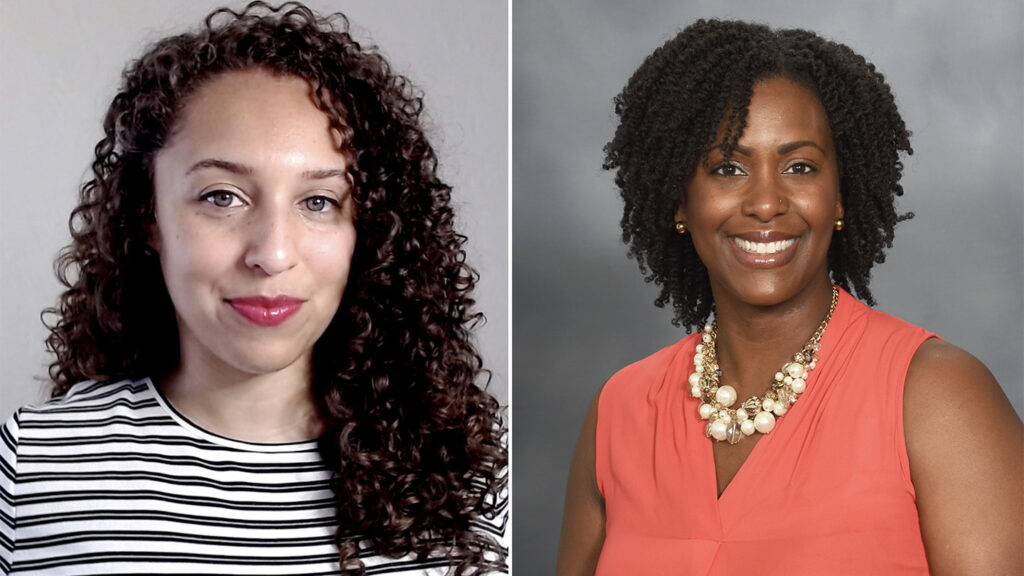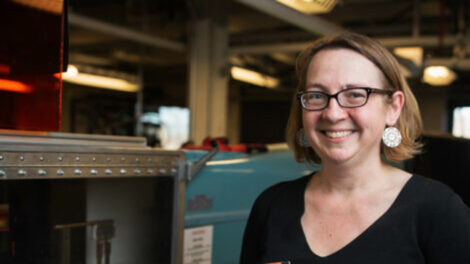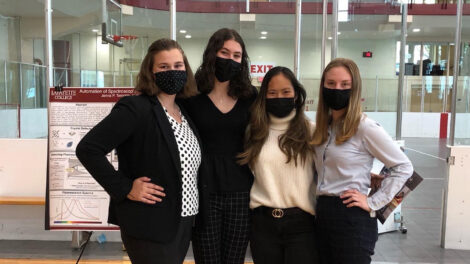Esteemed social psychologists Valerie Jones Taylor and Courtney Bonam to deliver guest lecture on undoing racism in interracial interactions
By Stella Katsipoutis-Varkanis
In a diverse society such as ours, the ability to communicate with and understand each other across racial differences is vital—and it’s a skill set that can never be overdeveloped. “Even if you’re already well practiced in managing interracial relationships, you can still learn, reflect, and grow—just like a really good choir still needs to rehearse,” says Jenn Rossmann, Baird Professor of Mechanical Engineering and co-director of the Hanson Center for Inclusive STEM Education at Lafayette.
As part of the College’s commitment to diversity, equity, and inclusion, the Hanson Center will be hosting a special event to help members of the campus community and beyond put these ideals into practice. On March 29, esteemed social psychologists Valerie Jones Taylor and Courtney Bonam—co-founders of ARC for Equity Antiracism Consulting—will be visiting the College to share their expertise and deliver a guest lecture, “Developing Race Skills for a Just and Equitable Society.”

Social psychologists Courtney Bonam (left) and Valerie Jones Taylor (right)
In the lecture, which is open to the public, Taylor and Bonam will introduce what they call “race skills”: a necessary and foundational skill set for understanding what race truly is, how it came to be, and how we can effectively function in a racially diverse society. Not only will they discuss factors that lead to prejudice, discrimination, and racism within our society, and how the collection of individual-level processes relates to structural-level racial inequality and racism; they will also provide empirical evidence and tangible, research-based tools for engaging in difficult race-related conversations and interpersonal interactions leading to anti-racist social action.
“Drs. Taylor and Bonam will help audience members identify and understand common pitfalls when interacting with someone of a different race, and develop strategies for preventing them in the future so that they are less likely to happen,” says Wendy Hill, Rappolt Professor Emeritus of Neuroscience and visiting professor at Lafayette, “which leads to better interracial communication.” Hill is also a co-director of the Hanson Center.
“Developing real empathy across differences, resisting easy assumptions, is foundational not just to education, but to citizenship in society,” adds Rossmann. “Understanding how we’re all interconnected and involved in our collective progress—at a moment when some are agitating to prevent us from truly understanding each other’s experiences—it seems especially critical for us to cultivate these skills.”
The opportunity to learn from experts in the field of social psychology who have used their research to develop a practical workshop and curriculum is another reason why this event is a can’t-miss, explain Rossmann and Hill. Taylor and Bonam are assistant professors of psychology at Lehigh University and University of California, Santa Cruz, respectively, and they both earned their doctorates in social psychology from Stanford University. Taylor is a recipient of the prestigious NSF CAREER award who teaches prejudice-reduction techniques through Black-white interracial interactions via VR technology, and Bonam is an expert on racialized physical spaces. In addition to delivering their lecture, Taylor and Bonam will be engaging with Lafayette students, faculty, and staff during their visit at the College.
Bonam and Taylor’s visit was made possible in part by Angela Bell, social psychologist and assistant professor of psychology at Lafayette, who is an expert in stereotyping and prejudice, and whose research addresses the experience of being a member of a stigmatized or marginalized group in social interactions.
The event will be hosted by the College’s Hanson Center for Inclusive STEM Education, whose mission it is to develop and promote best practices for inclusive STEM pedagogies; lead efforts to coordinate and sustain collaborative, interdisciplinary faculty research in inclusive STEM pedagogy and studies; develop interdisciplinary, cross-institution efforts in STEM studies, including curricular innovation around STEM in the context of society, culture, and social justice; and support students and faculty through various forms of engagement.
“Turning knowledge into practice is what the Hanson Center is all about,” Rossmann says. “We do research on our own efforts toward a more inclusive STEM ecosystem so that we’re not just importing best practices, we are understanding and developing best practices. I’m very excited about the event itself, but I’m also really excited about what it will enable us to do once it has occurred.”


